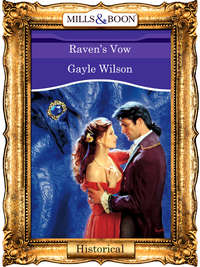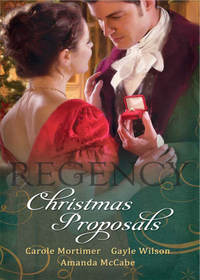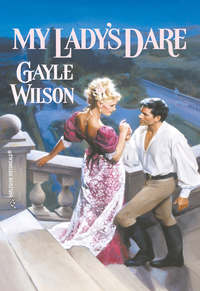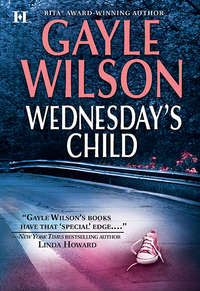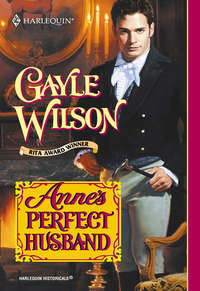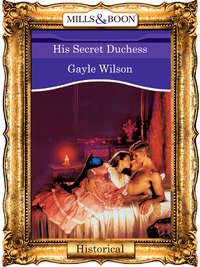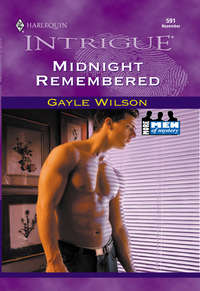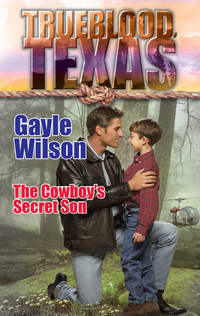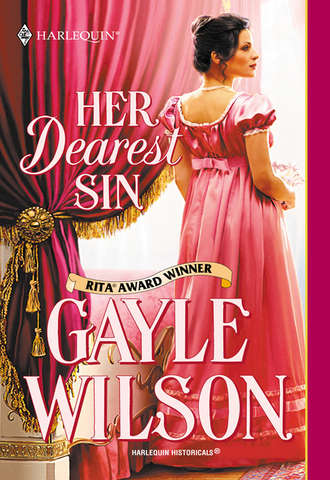
Полная версия
Her Dearest Sin
He could imagine Dare’s face when he heard the tale. The thought of his older brother’s sardonic enjoyment of his predicament was quite enough to ensure the choice Sebastian Sinclair would ultimately make.
He dove toward the pile of garments, throwing articles of his clothing aside until his fingers closed around the pistol he’d concealed beneath them. At any moment, he expected shots to rain down around him. After all, the muskets that the horsemen carried had been in plain sight the entire time.
He rolled away from the scattered clothing and then scrambled, crouching, to his feet, his gaze sweeping the top of the ridge. The men who had lined it seconds before had disappeared. Only the leader was still visible, now guiding his horse into the river on the opposite bank.
Sebastian closed the distance between him and the girl, his fingers fastening around her upper arm. He drew her with him toward the pile of boulders she must have hidden behind to launch her ambush. They would offer some protection until he could figure out where the other riders had gone.
Still holding his sword, she allowed herself to be carried along with him for a few feet. Then, with a twist of her arm, she jerked away from his hold. He had already taken a step toward her when he realized what she was doing.
She ran back to the scattered pile of clothing, stooping to grab the pair of breeches he had been reaching for when she’d stopped him. And then she turned, hurrying toward him.
She threw them over his arm, the one that was outstretched to hold the pistol pointed at the horse and rider, who were now swimming across the current. In a matter of seconds—
“Go,” she demanded.
“Not bloody likely,” Sebastian said.
He threw the breeches over his shoulder and took her arm again. He dragged her with him as he retreated, never taking his eyes off the approaching horseman. As far as he could tell, the man wasn’t armed, which made her repeated requests that he run ridiculous. Armed and with sufficient cover—
“You fool,” she said, the words low and intense.
Surprised by the vehemence of her tone, which had been almost as bitter as that with which she’d answered his inquiry about the identity of her pursuer, he glanced toward her. And saw what she must have known from the beginning.
The line of horsemen who had disappeared from the top of the opposite ridge were now riding at a canter along the bank on this side. Obviously, they had crossed the river at some nearby ford, which they must have been aware of all along. As had the girl, he realized. That knowledge made the action of their leader in risking life and limb in that treacherous plunge even less fathomable.
It hardly mattered now. Both methods of reaching this side of the river had been successful. Too damn successful from Sebastian’s point of view, since they were closing in on him from two directions. A highly efficient tactic that had afforded Wellington’s forces more victories than Sinclair cared to remember.
The rapidly dwindling options ran through his mind like lightning. His soldier’s instinct, honed by two years of hard fighting, discarded them all.
Of course, the first shot in would arouse the camp. Whether his friends would understand its significance and respond in time was another question.
“Release her.”
The command was in Spanish. Sebastian had picked up the language quickly in his time on the Peninsula, certainly enough to understand the order he’d just been given. Instead of obeying it, he leveled his pistol at the chest of the man who had pulled up his exhausted mount, its heaving sides still streaming water, in front of them.
Close enough that Sebastian could see the rider’s features quite clearly, despite the wide-brimmed black hat he wore pulled low over his eyes. They were as dark as the girl’s, but somehow this was a different black, cold and opaque. Almost soulless.
Looking into them, Sebastian Sinclair, who had been said to possess the steadiest nerve on the staff, shivered involuntarily. A chill from his recent swim, he told himself, denying that uncanny wave of apprehension.
“She’s under my protection,” Sebastian said in English, hoping that something of the claim would translate.
For an instant, the rage in those black eyes was clearly visible. And then the man on the back of the trembling, exhausted steed laughed, the sound far more chilling than his anger had been.
“Your protection?” he mocked in the language Sebastian had used, his gaze raking the Englishman from head to toe. “Then she is more foolish than I had imagined.”
“Let him go,” the girl said. “He has nothing to do with this.”
“And I wonder why I don’t believe you, my dear?” the man on horseback said.
Behind them, Sebastian could hear the other riders beginning to descend the slope. He held his pistol high so the fact that the muzzle was pointed at their leader’s heart would be obvious. Its warning didn’t slow their approach. The man before him had never glanced their way.
“I was stealing his clothes,” the girl said. “He knows nothing, I tell you.”
“He knows enough to recognize that he is in danger.”
“He’s no threat to you,” she said, pulling her arm from Sebastian’s hold.
She held out the sword so he could take it from her hand. Holding both the sword and the pistol would, however, leave him without any way to control her if she tried to surrender to the horsemen. It had become clear she believed it was her duty to save Sebastian rather than the other way around. Since he had never before been in the position of hiding behind a woman’s skirts, however, he was unwilling to begin that practice now.
“Despite her opinion of the situation,” Sebastian said. “I assure you that I fully intend to be a threat, sir. This lady is under my protection. She has no wish to go with you.”
“Do not make yourself more foolish than you already are,” the man said. “What she wishes is of no concern to me. Nor are you. Come, Pilar. You have wasted enough of my time.”
There was a long hesitation. No one moved, but it seemed to Sebastian that he could feel the muskets behind him drawing a bead on his naked back. There was an unpleasant crawling sensation along his spine, as if the nerves were preparing themselves for the impact of a ball.
He was near enough that he could hear the breath she drew before the girl said, “Your sword, sir.” Again she offered him the hilt.
“Don’t be afraid,” he said. “I won’t let him take you.”
He was well aware that claim was sheer bravado. He was outnumbered and outgunned. However, it was not in his training nor his background, and decidedly not in his nature, to do less than try to make good on the vow he’d just given, no matter the odds.
“A dozen of the best marksmen in Spain are behind you,” the horseman said. “Their guns are trained on your back. I should hate for one of them to miss and hit the girl you are trying to protect.”
“I think you should remind them that my gun is trained on your heart. If they shoot me, my finger will still apply enough pressure to this particularly sensitive trigger to cause it to fire. It seems we have reached checkmate, my friend.”
The man laughed, and Sebastian again felt that cold finger of apprehension along his spine. He had known innumerable men who were willing to face death on a daily basis for love of their country. Few of them laughed at its threat. Few who were sane, he qualified.
“I want your word,” the girl said unexpectedly.
His word? In the context of his exchange with the horseman, the phrase made no sense. Sebastian resisted the urge to look at her, unwilling to take his attention, even briefly, from the commander of those men at his back.
“Of course,” the horseman said, his voice still mocking.
His gaze lifted to some spot over Sebastian’s head, and the English soldier knew in that instant the signal for whatever was about to happen had just been given. Almost before the thought could form, the girl beside him brought the hilt of the sword she’d offered him down on top of his wrist. The heavy guard cracked audibly against bone, knocking his hand and the pistol it held downward. Just as he’d threatened, the hair trigger caused the gun to discharge.
When it did, it was no longer pointed at the chest of the horseman. The horse reared instead, screaming in pain and fear. Then it sank on its withers, staggering sideways before it toppled to the ground. The rider leaped away from the stricken animal, realizing even before Sebastian had, what was happening.
Shocked, Sinclair turned toward the girl who had betrayed him. Her eyes, washed with moisture, held on his for the split second before he was struck on the back of the head from behind. And her face was the last thing he remembered before he lost consciousness.
He would realize only later that it had been the shot that awakened him. At the time, he was aware of little beyond the warmth of the rock beneath his cheek and the ache at the back of his skull. He tried to open his eyes, but the sunlight reflected off the water dazzled them, creating dancing spots that obscured his vision.
When it began to clear, the first thing he saw was a pair of boots, directly in front of his nose. Their fine-grained leather was polished to a high gloss that rivaled that reflected off the surface of the water.
Too disoriented at first to understand what was going on, Sebastian gradually became aware that he was lying on the ground, his hands bound together at the wrists. The leather thong with which they had been tied was tight enough that his fingers were growing numb.
A number of men and horses seemed to be milling around him. He watched with disinterest as one of the men crossed his limited field of vision carrying a smoking musket. It was only then that Sebastian realized what had awakened him.
They had killed the horse he’d shot, putting the animal out of its agony. The noise the dying stallion had been making seemed to echo still off the rocky slopes. Although Sebastian had not been conscious of what had caused those sounds as he came awake, the resulting silence was a relief.
Before he had time to relish it, the point of his own sword was again pressed against his throat. This time the tip had been placed just beneath his chin, the point exerting an upward pressure.
“Look at me, you English bastard.”
More in obedience to the urging of the blade than to the command, Sebastian turned his head, looking up into the eyes of the man standing over him. The man whose boots he’d been facing when he’d awakened. The man who’d ridden the stallion down that rocky incline and then jumped agilely from the dying animal’s back.
Sebastian had thought before how soulless these eyes were. Now they were filled with a hatred that was palpable, and for the first time he was truly afraid.
Not to die. He had never really been afraid of dying. Not if the death were clean and honorable. In the two long years he had spent at war, however, he had become aware that there were many things worse than dying. All of them were reflected in this man’s eyes.
“You killed my stallion,” the Spaniard said.
If Sebastian had believed an apology might make a difference, he would willingly have framed one. He had never intended to harm the horse, of course. This bastard, on the other hand—
“With my own hands, I pulled him from his mother and blew into his nostrils,” the horseman continued, his voice low, each word intense. “And you, you worthless piece of offal, have slaughtered him.”
The milling men and their horses had stilled. Only the rush of the river and the malice of the horseman’s voice disturbed the afternoon heat. And the same ominous quiet that settles over the countryside before a storm seemed to surround them.
“You gave me your word,” the girl reminded.
Pilar.
She had been the one who had knocked his hand aside. With that gesture, she had delivered him into the hands of his enemy.
The black eyes of the horseman lifted from their focus on his face to find that of the girl, and Sebastian realized she was standing on the other side of him. Despite the threat of the sword, he turned his head far enough that he could see her. Her eyes were on the man who held the sword against his throat—and with it, held his life.
“My word?” the Spaniard questioned, mocking the soft determination of her reminder. “And what do you suppose that is worth now, considering what he has done?”
“Your word was once worth a great deal. Is it no longer?”
“The situation has changed.”
“And so your word is no longer your word?”
“He killed El Cid.”
“That was not his intent. If you wish to blame someone for the death of the stallion, then you must blame me,” she said.
Sebastian opened his mouth to protest and a sudden pressure of the sword against the thin skin under his chin pushed it closed. The eyes of the horseman had never moved from the girl’s face.
As it had been from the first, the real struggle of will was between the two of them. Sebastian had simply gotten in the way. He was someone who had no part in this quarrel, but who might very well pay the price of it with his blood.
“I wonder why you are so interested in saving the life of an English soldier. A man you profess not to know.”
“I don’t know him. I never saw him before today. I needed his clothing, and so I tried to steal it.”
“His clothing?”
The sword moved away from his chin, but before Sebastian could react to its release, the point lowered again, this time to score quickly down his breastbone. The pressure was enough to split the skin, leaving a thin line of welling blood from his collarbone to his navel.
The shock of what the horseman had just done was enough that he didn’t feel the sting from the shallow cut. Not immediately.
“He doesn’t seem to be wearing any,” his captor gibed.
“Exactly,” said the girl, her voice perfectly calm. “Making that which he’d taken off in order to bathe available.”
“Clothing,” the horseman mused as if he were considering the possibility. “Your only interest was in his clothing. You had none in the man himself, I take it?”
The sword had moved again. The point rested now on the most vulnerable part of Sebastian’s masculinity. The threat was as effective as when the tip had been placed at his throat. Furious—and helpless—he tried to express his rage with his eyes, but neither of them was looking at him.
“I had no use for the man,” she said.
The thin lips of the Spaniard curved, the expression more sneer than smile. “Then I take it you would have no objection if he were…no longer a man,” he suggested.
Sebastian’s blood ran cold through his veins, but he fought to control any outward revelation of that. He had known men like this, men who enjoyed inflicting pain, either mentally or physically. Their cruelty always fed on their victim’s terror.
“You gave me your word that he would be unharmed,” Pilar said again.
Her voice had not changed, despite the nature of that threat. Sebastian found himself clinging to the hope represented by her calmness. She knew this man, far better than he could. It was evident that she believed this argument would have some weight on his decision.
“I promised you his life,” the man said.
“That was not the promise I sought.”
“It was the one you were given.”
There was a small pause, and Sebastian held his breath as it lengthened.
“You have won,” she said. “You can afford to be magnanimous.”
“I can afford a great number of things. I value only those that give me pleasure.”
Sebastian wondered if she gave him pleasure, and again the unpleasantness of the thought disturbed even the fear and the fury at his helplessness.
The girl said nothing in response, but her chin lifted. An unspoken challenge? Or simply an expression of pride?
“I hold you to your word, Julián. You are bound by the oath you gave me, no matter the circumstances.”
The Spaniard’s smile was as soulless as his eyes. Almost before it formed, the sword moved—one flick of his wrist and then another. With the point, he had drawn an X on Sebastian’s chest, directly over his heart.
Before the Englishman could think of trying to respond, the point of the blade was pressed against the very center of that mark. All the horseman needed to do was lean forward, putting a downward pressure on the hilt…
“I hope you are telling me the truth, my dear. I do so hate liars and cheats.”
“I never saw him before today,” she affirmed.
“And you care nothing for him.”
“Only as I care for any fellow creature. I do not wish to see him hurt for some groundless suspicion that he has given me aid. Or for your jealousy.”
The point of the sword lifted again, settling this time very near the place where it had been resting when Sebastian had regained consciousness. The horseman’s eyes fell to his face. Lips pursed, he seemed to study Sebastian’s features as if he were memorizing them.
“Very well,” the Spaniard said finally. “Since I gave you my word…”
Again his lips tilted upward and, with another flick of his wrist, so did the sword. It slashed across Sebastian Sinclair’s face, a much deeper cut than the one it had drawn along his chest.
The blade had sliced diagonally, moving across the flesh of his chin and missing the corner of his mouth by a hair’s breadth. Then it had continued on that same path, straight as a die, laying open his cheek. The point lifted only when it reached the hairline at his temple.
The horseman’s eyes had followed the lightning-quick movement of the sword. When it reached its apex, his strong swordsman’s wrist straightened, snapping the tip of the blade upward, straight at the girl’s face. A droplet of blood was flung from the flexing steel onto her cheek.
“Unharmed. As promised,” the horseman said, smiling. And then, as he turned to mount one of the other horses, which was being held for him by its rider, he threw a brusque order over his shoulder. “Bring her.”
Two of the men stepped forward and took the girl by the elbows. She offered no resistance, but before she moved, she looked down into Sebastian’s eyes.
“I’m sorry,” she said.
Then, with one quick, decisive movement she freed her arms. As if she were a queen approaching her courtier, she walked across the rocks to the man who had slashed open Sebastian’s face. When she reached the horseman, who had already vaulted into the saddle, he lowered his hand, holding it out to her.
She put her fingers in his and her foot on the toe of the boot he offered. With a movement as smooth as that with which he had mounted, she was pulled up onto the horse and settled behind the Spaniard.
Without looking at Sebastian again, the horseman put his booted foot back into the stirrup and used his heels to urge the gelding up the slope that led to the English-held side of the river. The other riders streamed behind them, heading back toward the ford they had crossed before.
Stunned by what had just occurred, Sinclair lifted his bound hands, trembling fingers touching the cut that marred his face. His eyes filled with tears, not of pain or anguish, but of sheer, unadulterated rage as he listened to the sound of their horses’ hooves fade away on the rocks.
He lay where they had left him. And looking up blindly into the heat of the summer sky, he swore that he would find and kill the Spanish bastard who had ruined his face if it were the last thing he ever did in this life.
Chapter One
Madrid, 1814
“And finally, I would remind you that we are here as representatives of the Prince Regent,” the Duke of Wellington concluded, his piercing eyes examining each of his officers in turn. “I need not tell you what an honor—and a responsibility—that is.”
He inclined his head, almost a bow, before he turned. As if on parade, his staff followed him through the massive doors and down the steps of the residence that had graciously been made available to the former commander of the British forces in Iberia, now special envoy to the Spanish court. Waiting below were the carriages that would take Wellington and his party to the reception at the royal palace.
Some of the men who accompanied the duke tonight had been with him the last time he had entered Madrid—under far different circumstances than these. There was very little he could tell them about duty or responsibility they didn’t already know. And he, more than anyone, understood that.
“He’d rather be hanged, I venture,” Viscount Wetherly confided sotto voce to Sebastian as they followed their commander.
“He’d rather be charging an enemy,” Sinclair responded more accurately.
“He’ll find enough of those tonight. Not the sort one can take satisfaction in charging, of course. A gaggle of Spanish nobles determined to turn the clock back on the past five years. Can’t be done, if you ask me.”
“No one will,” Sebastian assured his friend with a grin. “Politics isn’t your forte, Harry. Leave the maneuvering to the Beau. At least he knows what message it is we’re supposed to convey to Ferdinand and his advisors.”
“That they shouldn’t let the Inquisition start burning people at the stake again, I should think,” Harry said. “Seems reasonable to me.”
And not so far from the truth of the matter, Sebastian acknowledged ruefully, despite his comment about the viscount’s lack of political understanding.
Wellington had been sent by the English government to advise the Spanish court that it would be the height of folly to attempt to undo the reforms instituted in the country while its rightful king had been in exile. No one, least of all His Majesty’s envoy, expected that mission to be a success.
“But will it seem reasonable to them?” Sebastian asked. “That’s the question. Not that Wellington gives a damn. He’ll deliver the prime minister’s warning because that’s what he’s been asked to do. What they do in response will be up to them.”
They were aware from bitter experience that Arthur Wellesley, now Duke of Wellington, had never suffered fools gladly. Riding a crest of unbelievable popularity due to his role in the defeat of Napoleon, he would have little reason to change that habitual attitude now.
“Have to confess,” Harry went on as they settled into the last of the line of carriages, “I’m not nostalgic about being back in Madrid. Can’t compare to the glories of Paris in the spring.”
“To the glories of the dancers at the Opera, you mean.”
“You’re simply jealous, my dear. I can’t be blamed that the loveliest preferred me,” Harry chided.
It was the kind of repartee they had engaged in a thousand times through the long years of their friendship—bragging about their exploits with the fairer sex or their ability to drink or to fight, each claiming superiority. This time, however, there was a small silence after the viscount’s unfortunate choice of words. And then the situation became even more awkward when Wetherly attempted to apologize for them.
“You know that ain’t the truth, Sin,” Harry said, his voice subdued. “No woman has ever preferred me to you. Not even after…”
The hesitation provided an opportunity for Sinclair to break into that nearly stuttering explanation, one which he gratefully took. “Not even after they’ve gotten a good look at my face?” he asked with a laugh, putting a comforting hand on his friend’s shoulder.
“I didn’t mean that,” Harry said stiffly.
“Just because the lot of you pretend this doesn’t exist,” Sinclair said, touching the still-reddened scar that traversed his cheek, “doesn’t mean it isn’t there. Plain as the nose on Wellington’s face,” he said.
Sinclair never referred to the scar except mockingly, as he had done tonight and, then only in response to another’s comment about it. Most people assumed it to be the result of an injury received in battle. The few friends who knew the truth of the incident said nothing to disabuse others of that notion.


